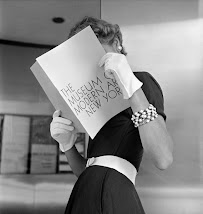-
Thursday, May 19, 2005
Pay attention to the number: 86.7 Million Dollars (money going to ONE-THIRD of the members of US Congress, records show)
Abramoff, Tribes' Cash Spread Widely in U.S. Congress (Update2)
-------------------------------
Bloomberg News Feature
E-Mail This Story
Abramoff, Indian-Tribe Money Reached Deep Inside U.S. Congress Listen to Senator Charles Grassley (Senate Finance Chairman)
May 19 (Bloomberg) -- Jack Abramoff, the lobbyist at the center of ethics questions involving House Majority Leader Tom DeLay, joined with his partner Michael Scanlon and Indian tribal clients to give money to a third of the members of the U.S. Congress, records show.
A Bloomberg News analysis of Federal Election Commission and Internal Revenue Service records shows that at least 171 lawmakers got $1.4 million in campaign donations from the group between 2001 and 2004, mostly from tribes with casino interests. DeLay, a Texas Republican, ranked 10th, receiving $35,000.
The contributions show the extent of the tribes' reach in Congress since they hired Abramoff and Michael Scanlon, a former DeLay spokesman. As details emerge from two Senate investigations and an FBI probe of Abramoff's dealings with the tribes, questions of ethics may haunt some congressional races in 2006.
``That is always an advantage for the party out of power,'' says Steve Gunderson, a Republican representative from Wisconsin until 1997. ``The politics of `it's time for a change' always comes back into American politics.''
Dissatisfaction with the legislators is at an eight-year high, a Gallup poll conducted May 2-5 found. Only 35 percent of 1,000 adults said they approved of the way Congress does its job.
``It's not a pretty picture,'' says Frank Newport, editor-in- chief at the Princeton, New Jersey-based Gallup Organization. It's hard to gauge how concern over ethics affects approval ratings, Newport says, adding ``it's a logical suspect'' in the decline.
Many lawmakers -- Republicans and Democrats -- got contributions from the tribes for reasons that had nothing to do with Abramoff's activities and say they never met the lobbyist.
$86.7 Million
Abramoff and Scanlon were attracted to the tribes as potential clients because of their substantial casino revenue -- $18.5 billion in 2004 for all U.S. tribes -- according to e-mails released at Senate Indian Affairs Committee hearings last fall. The lobbyists collected $86.7 million in fees from tribal clients from 2001 to 2004 and sometimes steered campaign contributions from the tribes to politicians, according to committee documents and federal disclosures.
Republican Senator Conrad Burns of Montana led all 535 members of Congress in donations from Abramoff and the tribes, netting at least $136,500 from 2001 to 2004. As head of a panel overseeing the Bureau of Indian Affairs budget, Burns, 70, had a say in the flow of funding to tribes running casinos.
Four other senators were among the top 10 recipients of money from the tribes and lobbyists: North Dakota Democrat Byron Dorgan, with $54,000; Kansas Republican Sam Brownback, with $43,000; Mississippi Republican Thad Cochran, with $37,000; and Washington Democrat Patty Murray, with $36,980.
Kennedy, Ney, Hastert Representative Patrick Kennedy, a Rhode Island Democrat, ranked second among recipients, taking in $115,000. He was followed by Ohio Republican Representative Robert Ney, with $56,500. House Speaker Dennis Hastert of Illinois was fifth with $49,500.
Most of Kennedy's donations came from the Mississippi Choctaw tribe. Kennedy and Chief Phillip Martin are friends and the congressman has never met Abramoff, says Sean Richardson, Kennedy's top aide. Dorgan spokesman Barry Piatt says the senator ``doesn't know Jack Abramoff, has never met him and has never dealt with anyone that he understood to work for him.''
About $18,000 of DeLay's donations came from the Saginaw Chippewas. Another $17,000 came from Abramoff. Abramoff spokesman Andrew Blum had no comment.
The 2006 elections are 18 months away, allowing time for the Abramoff matter to fizzle. ``I'm not sure it will have that much effect,'' says Paul Findley, an Illinois Republican who left Congress in 1983. ``It depends upon the fate of Tom DeLay himself and the direction of the party.''
Still, a May 11-15 Pew Research Center poll found that voters' satisfaction with their representatives is about as low as it was before the Democrats lost control of the House in 1994.
``These generally unfavorable views may have political ramifications for incumbents seeking re-election in 2006,'' the Washington-based center said.
To read the entire story, click here: http://quote.bloomberg.com/apps/news?pid=nifea&&sid=aRuhh0yzfUn8
To contact the reporters on this story:
Mike Forsythe in Washington mforsythe@bloomberg.net ;
Kristin Jensen in Washington kjensen@Bloomberg.net
Last Updated: May 19, 2005 00:11 EDT
Subscribe to:
Post Comments (Atom)











No comments:
Post a Comment